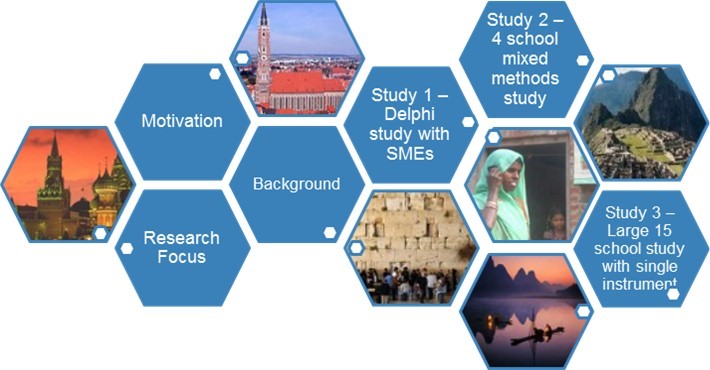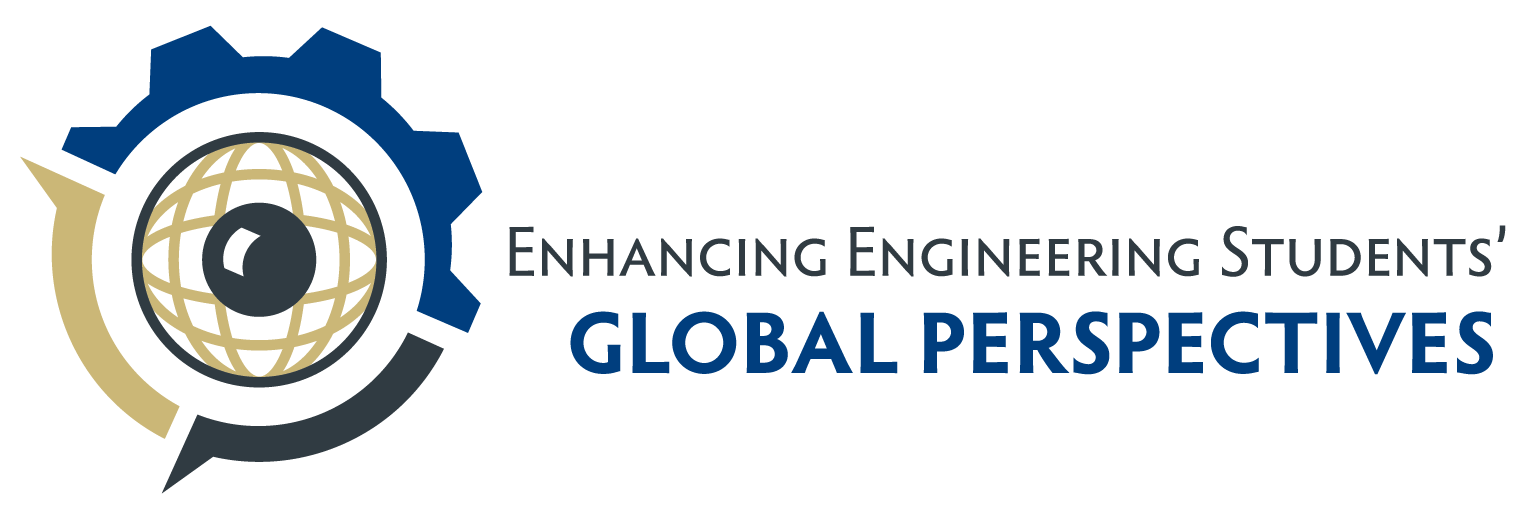Assessing the Spectrum of International Undergraduate Engineering Educational Experiences

Background. Study 1- Delphi study with SMEs. Study 2 - Four school mixed methods study. Study 3 - Large 15 school study with single instrument.
Project Overview
International experiences are an important component of engineering education. Yet little has been done to operationally define engineering global preparedness, specify the various alternatives for achieving it, or determine the degree to which global preparedness is the result of personal attributes, prior experiences, or curricular and/or extra-curricular experiences.
To enhance engineering students’ global preparedness, we must:
1) Better identify the various ways that global preparedness can be developed both in and out of formal curricula
2) Better understand how each approach enhances students’ global preparedness
We are conducting three separate but integrated studies to investigate how international experiences both curricular and co-curricular impact engineering students’ global preparedness.
Study 1:
Develop with experts an operational model of international experiences specific to engineering education. In doing this, we will establish constructs of international education and learning outcomes, and match these with appropriate assessment instruments.
Study 2:
Conduct a mixed-methods experiment among our four collaborating schools (University of Pittsburgh, University of Tulsa, University of Southern California, and Clemson University). We will do this through a triangulation study using three established assessment instruments that capture different constructs. Using statistical modeling efforts, we will map outcomes to educational practices, institutional characteristics, and student backgrounds. From the results, we will conduct a series of interviews to tease out underlying experiences that contribute to global competencies.
Study 3:
Conduct a larger cross-institutional quantitative study of 15 engineering schools to analyze the impact of various international experiences.
Disseminate these results to engineering administrators and the larger engineering education community using an innovative, online approach that both queries the larger population of engineering programs, and updates in real (or near real) time aggregate results as to the extent the various models for achieving global competency are being employed, combined with our assessment of their effectiveness.
For any information, please contact us!
Project Overview Related Publications
Besterfield-Sacre, M.E., G. Ragusa, C. Matherly, S.R. Phillips, L.J. Shuman, and L. Howard (2013), ”Assessing the Spectrum of International Undergraduate Engineering Educational Experiences,” 2013 International Forum, Atlanta, GA, June 21, 2013
Streiner, S., S. Cunningham, S. Levonisova, S. Huang, C. Matherly, M. Besterfield-Sacre, G. Ragusa, L. Shuman, and D. Kotys-Schwartz, “Exploring Engineering Education in Broader Context: A Framework of Engineering Global Preparedness” , 2014 ASEE Annual Conference and Exposition, Indianapolis, IN June 2014
Besterfield-Sacre, M.E., L. Shuman, G. Ragusa, C. Matherly, and L. Benson (2015), ”Assessing the Spectrum of International Undergraduate Engineering Educational Experiences,” 2015 ASEE Annual Conference and Exposition, Seattle, WA, June 2015
Besterfield-Sacre, M.E., L. Shuman, C. Matherly, G. Ragusa, and L. Benson (2016), ”Assessing the Spectrum of International Undergraduate Engineering Educational Experiences: Three Studies,” 2016 ASEE Annual Conference and Exposition, New Orleans, LA, June 2016
Shuman, L., S. Streiner, M. Besterfield-Sacre, G. Ragusa, C. Matherly and L. Benson (2017), ”Assessing the Spectrum of International Undergraduate Engineering Educational Experiences: A Cross Institutional Study,” accepted for the 2017 ASEE Annual Conference and Exposition, Columbus, OH, June 2017
